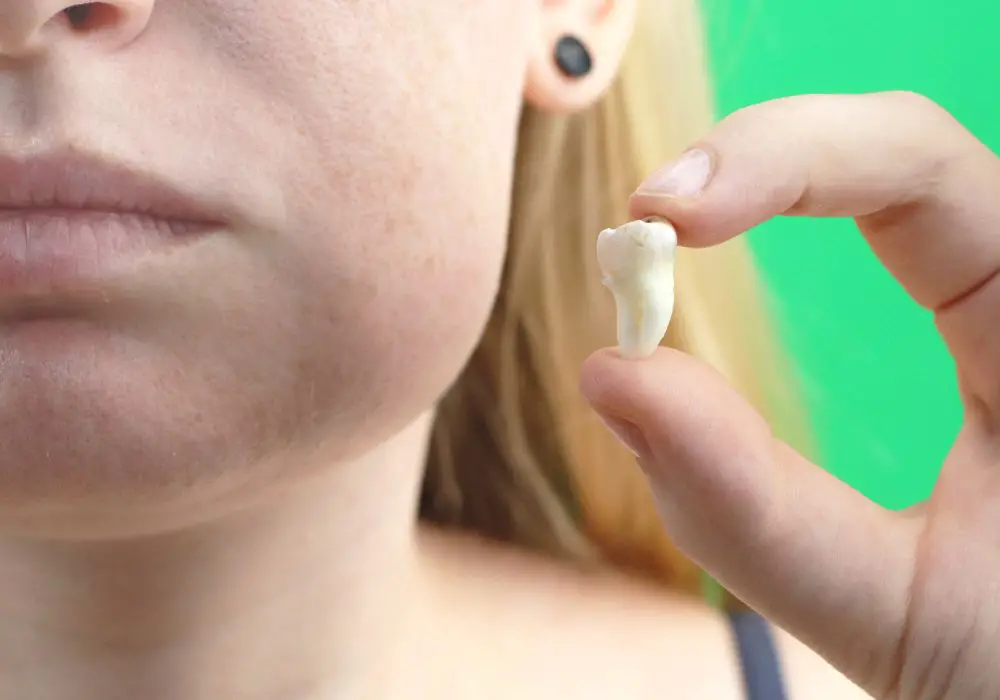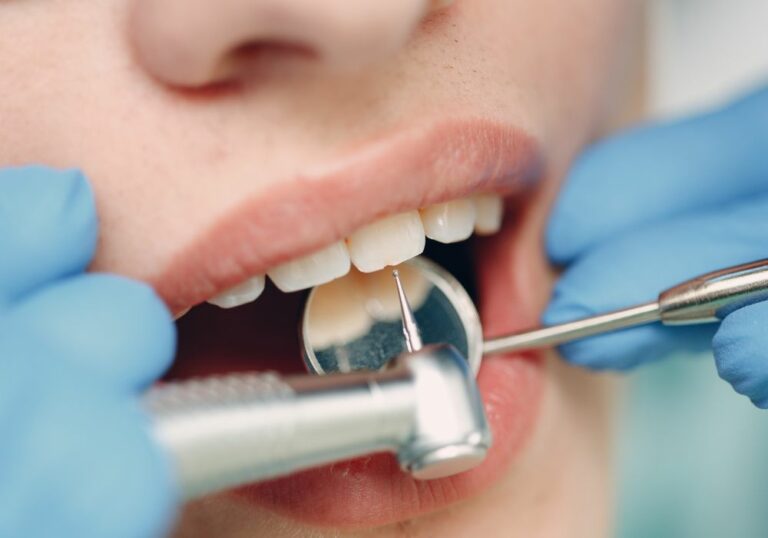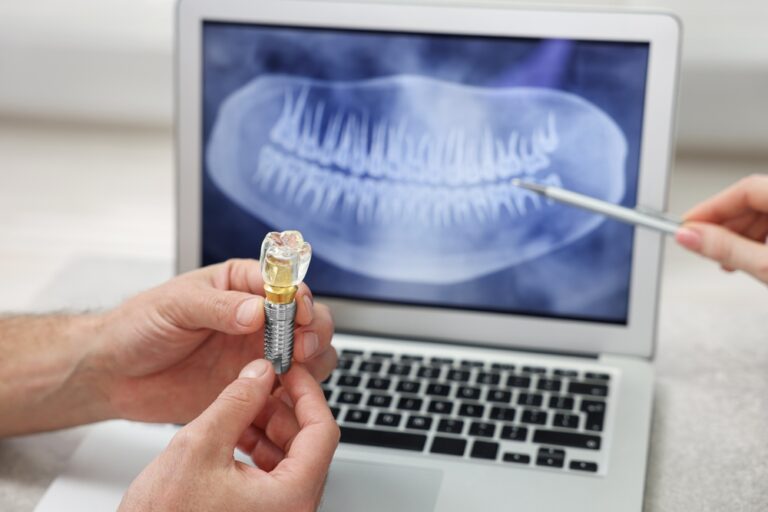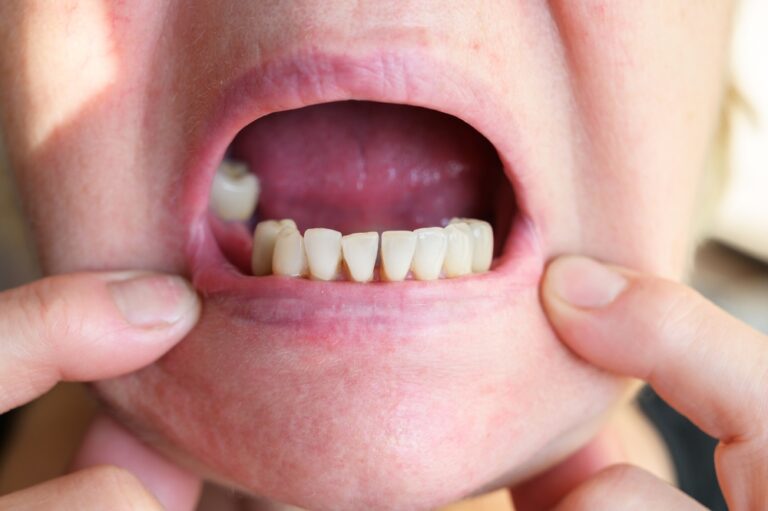Getting your wisdom teeth removed is a common procedure that many young adults undergo. It’s often recommended to avoid potential problems like crowding, infections, cysts, or tooth decay later on. While wisdom tooth extraction is generally a straightforward oral surgery, it leaves many patients dealing with facial swelling and puffiness as part of the recovery process. If you’ve noticed your face is abnormally swollen after getting your wisdom teeth taken out, you’re not alone. Here’s a detailed look at the causes, timeline, remedies, and FAQs regarding wisdom teeth removal and facial swelling.
What exactly causes facial swelling after wisdom tooth extraction?
There are several overlapping reasons why wisdom tooth removal is prone to resulting in a swollen face for most patients:
Surgical trauma from wisdom tooth extraction
Extracting the wisdom teeth, especially the lower ones, requires incisions into the gums and the alveolar bone that contains the tooth sockets. The dentist or oral surgeon must detach tissue attachments and manipulate the tooth to successfully remove it. This can damage and stretch facial muscles and membranes in the process. The trauma from digging out impacted or difficult wisdom teeth is even greater. All this surgical disruption releases inflammatory chemicals and fluid that swells up your jaw area tissues.
Swelling from your body’s natural healing response
Any invasive surgery prompts inflammation and swelling as your body goes into healing mode. The trauma of wisdom tooth extraction triggers your immune system to release chemical compounds called prostaglandins that dilate your blood vessels and allow more fluid, antibodies, white blood cells, and nutrients to reach the injured site and facilitate healing. This vastly increased blood flow and fluid leakage into tissues is what causes the puffiness in your gums, cheeks, and neck. While uncomfortable, it’s a normal protective inflammatory response after oral surgery.
Gravity’s effects on fluid and swelling
The areas most affected by wisdom tooth extraction are your lower jaw and gumline. When injury and inflammation from surgery occur here, gravity naturally pulls the fluid buildup downward. This leads to accumulation of swelling in your lower facial region, chin, jawline, and upper neck after extraction. If your top wisdom teeth were removed, swelling can also pool in your upper cheeks. But the bottom half of your face often looks puffier due to gravity’s impact on your body’s fluids after extraction incisions to your lower gum area.
Potential risk of postoperative infection
While good oral hygiene and antibiotics from your dentist help prevent it, there is always a slight risk of developing an infection after any tooth extraction procedure. Infections after wisdom teeth removal are often due to bacteria entering the extraction sockets or complications like dry socket. Infection exacerbates swelling and inflammation exponentially as your body floods the area with disease-fighting white blood cells. Using ice, medications, and prompt oral care helps reduce this risk.
What’s the typical swelling time frame after wisdom tooth removal?

While the extent varies based on your specific surgery and body, here is the general timeline for how facial swelling progresses and subsides after wisdom teeth extractions:
- Day of surgery: Swelling is minimal as anesthetics wear off, but builds up overnight as fluids rush to the surgical region. Using ice packs regularly helps counteract this initial swelling.
- Days 2 – 3: The peak swelling period when your face will look most puffy and enlarged. This is the body’s strongest inflammatory stage and things may feel more swollen before they start getting better.
- Days 4 – 5: Swelling should very gradually begin subsiding. You’ll notice puffiness and tightness decreasing bit by bit.
- Day 7: About 1 week after wisdom tooth removal, the majority of facial swelling resolves, leaving residual minor swelling possible for another week or so.
- 2 weeks after: Most patients are back to normal facial appearance by 2 weeks post-op, though some experience lingering minor swelling lasting several more weeks. Everyone heals differently!
Talk to your oral surgeon or dentist about the expected swelling duration based on your specific extraction difficulty, age, health status, and number of wisdom teeth removed. Proper aftercare also impacts swelling duration.
Tips to minimize swelling after wisdom tooth extraction
While some facial puffiness is unavoidable after oral surgery, you can take proactive steps to control inflammation and reduce the degree and duration of wisdom teeth removal swelling:
Use cold compresses
Icing is your best friend for counteracting the initial surge of swelling after extraction. Cold constricts blood vessels, slowing the flow of fluids to the tissues. Use cold packs, ice bags, or even bags of frozen peas on your cheeks and jaw for 10-20 minutes at a time, taking breaks to avoid damaging skin.
Take over-the-counter NSAID medications
Non-steroidal anti-inflammatory medications like ibuprofen (Advil, Motrin) or naproxen (Aleve) can provide pain relief while reducing inflammation if used as directed after surgery. These help calm the body’s inflammatory response.
Sleep propped up with extra pillows
Try to sleep at an incline to prevent gravity from pulling fluids downward into your face and neck. Keeping your head elevated above your heart ensures excessive swelling doesn’t build up overnight.
Avoid salty, spicy or acidic foods
Eat bland, lukewarm soft foods after extraction. Salt causes fluid retention and spicy or acidic foods can irritate healing wounds. Focus on smoothies, broths, yogurt, oatmeal, mashed potatoes, etc.
Apply warm compresses
Once major swelling has improved after a few days, warm moist compresses can improve blood circulation needed for healing. Never apply heat right after surgery when inflammation peaks.
Gently massage your face and neck
Light massage can help drain fluid buildup and break up swelling. But avoid directly massaging the wisdom teeth wounds while they heal.
Maintain diligent oral hygiene
Rinsing mouth with saltwater and keeping extraction sites clean prevents infection that worsens swelling. See your dentist if wounds don’t heal properly.
Ask about steroid medications
For more severe cases of wisdom teeth swelling, oral surgeons may prescribe a short steroid course to resolve swelling. But steroids have side effects.
Warning signs of complications with wisdom teeth swelling

Make an urgent follow-up appointment with your oral surgeon or dentist if you experience:
- Severe swelling that suddenly worsens after initial improvement
- Facial swelling accompanied by fever, body chills or foul mouth odor
- Extreme redness or purulent discharge from extraction sites
- Difficulty swallowing, opening jaw, or moving mouth
- Swelling lasting longer than 1-2 weeks without improvement
These may indicate an infection or other post-op complication requiring additional surgery or antibiotics to treat abnormal swelling. Don’t hesitate to call your dental provider if swelling seems beyond normal.
Medications that can help reduce severe wisdom teeth swelling
If at-home remedies aren’t providing enough relief from facial inflammation after wisdom tooth removal, talk to your dentist or doctor about using prescription medications to get the swelling under control:
Steroid pills or injection
Potent steroid anti-inflammatory medications like dexamethasone or prednisone taken orally or injected into the swollen site are very effective at reducing post-op wisdom teeth inflammation. But they have side effects if taken long-term.
Antibiotics
Antibiotics treat bacterial infections that can exacerbate swelling after extractions. They may be prescribed preventively or if an infection develops in the mouth.
Prescription pain medication
Stronger prescription pain pills dampen pain signals while providing anti-inflammatory benefits to calm swelling, especially if over-the-counter medications are insufficient.
Muscle relaxants
If swelling is accompanied by severe jaw muscle tightness and spasms, a doctor may prescribe a short course of muscle relaxers like diazepam to relieve this and allow healing.
Talk to your dentist or oral surgeon if swelling is lingering longer than expected and interfering with your quality of life after wisdom tooth extraction. Additional medications or interventions may be needed in some cases. Don’t try to tough out abnormal pain or swelling – get it evaluated.
When can I expect my face to look normal again after wisdom teeth removal swelling?
With proper at-home care and your dentist’s guidance, facial swelling should gradually subside and your face return to its pre-surgery appearance on this approximate timeline after wisdom tooth extraction:
- Major swelling begins improving around 1 week post-op
- Residual minor tightness and puffiness subsides within 2 weeks
- Jaw stiffness and difficulty opening mouth improves after 7-10 days
- Numbness from nerve inflammation resolves within several weeks
- Jaw and facial muscles return to normal strength around 3-8 weeks
- Skin appearance normalizes within 1-2 months
Swelling duration depends on your individual healing ability, surgical complexity, and post-op care. Alert your oral surgeon if you experience protracted abnormal swelling beyond 2 weeks or have concerns about the pace of your recovery. Most patients look reasonably normal within 7-14 days after wisdom teeth removal swelling peaks.
Can facial swelling be prevented before wisdom tooth extraction?

It’s impossible to avoid swelling completely after extraction surgery. But certain pre-op measures can help reduce the degree of post-op inflammation:
- Take anti-inflammatory medication or antibiotics before surgery if prescribed
- Avoid smoking, alcohol, and irritating foods 48 hours pre-op
- Apply ice packs to surgery sites 1 hour before procedure
- Have extractions done one or two teeth at a time rather than all four together
- Plan for help and proper aftercare to focus on icing and medication compliance
While you’ll likely experience some swelling, discussing concerns with your oral surgeon and following their pre- and post-op instructions can help limit this wisdom teeth side effect.
Frequently Asked Questions about Wisdom Teeth Swelling
How can I tell if my wisdom teeth swelling is normal or sign of infection?
Mild to moderate swelling that starts improving after a few days is normal. Signs of potential infection include severe or worsening swelling after day 3, accompanied by fever, chills, foul odor, bleeding, pus drainage or difficulty swallowing or opening jaw. Seek urgent dental evaluation.
When should I use heat versus ice for wisdom teeth swelling?
Ice or cold compresses are recommended for the first 2-3 days after extraction when swelling peaks. After major swelling improves, warm moist heat can improve blood flow needed for healing. Avoid heat immediately after surgery.
How long should I keep taking anti-inflammatory medicine after wisdom teeth removal?
Over-the-counter NSAID swelling relievers are generally recommended for 4 to 7 days post-op. If prescribed steroids or stronger medications, carefully follow usage instructions. See your dentist if swelling persists beyond 2 weeks.
What foods should I eat after wisdom teeth removal to avoid swelling issues?
Focus on a soft diet of cool, lukewarm foods. Avoid very hot, spicy, salty, acidic or crunchy foods that can irritate extraction wounds. Smoothies, yogurt, eggs, mashed veggies, broths and ice cream are good options.
How can I deal with jaw stiffness, tightness and difficulty opening mouth after wisdom teeth removal swelling?
Gentle massage, warm compresses after a few days, NSAID medication as directed, and practicing slowly and gently opening and closing your mouth can all help improve range of motion as swelling subsides. Call your dentist if this persists beyond 10 days.







